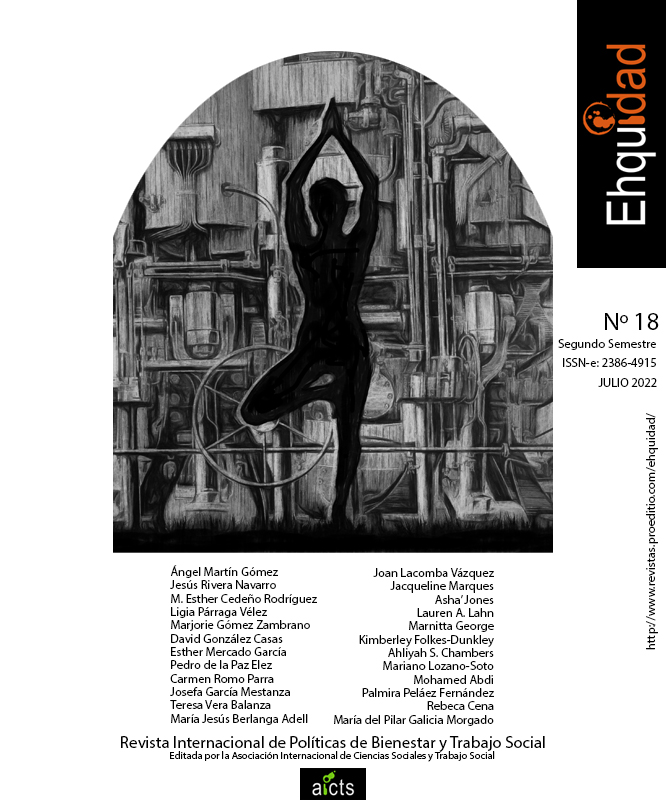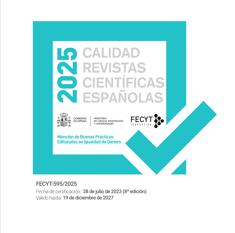When does development come? Transformations and uncertainty in a small rural community in Morocco
DOI:
https://doi.org/10.15257/ehquidad.2022.0015Keywords:
Development, Emigration, Capabilities approach, Morocco, TourismAbstract
Development has always been a controversial issue, with multiple views surrounding it. However, theoretical discussions have rarely been transferred to the empirical field and have been confronted with the life experience of populations. The objective of this article is to delve into the implications of the implementation of development from the case of a small community located in the central mountains of Morocco. Our basic hypothesis is that understanding development remains complex, while requiring the integration of the views of different actors and the use of alternative approaches. From the continuous contact over time with the community, both on the field and from distance, we show the transformations that have taken place in it and the dilemmas that it still faces after two decades of development.
Downloads
References
Benidir, M. (2015). Les courtiers associatifs en développement dans le Sud-Est du Maroc, Anthropologie & Développement [En línea], 42-43. Consultado el 20 de abril de 2019. http://doi.org/10.4000/ anthropodev.371
Bennouna, M. (2002). Héros sans gloire: Échec d'une révolution (1963-1973). Casablanca, Tarik.
Cejudo, R. (2007). Capacidades y libertad. Una aproximación a la teoría de Amartya Sen. Revista Internacional de Sociología, Vol. LXV (47), 9-22
Engberg-Pedersen, L. (1997). Institutional contradictions in rural development. European Journal of Development Research, 9, 183-208.
Escobar, A. (2014). La invención del desarrollo. Popayán, Universidad del Cauca.
Fernández-Baldor, Á., Hueso, A. y Boni. A. (2012). Contribución del enfoque de las capacidades de Sen a los proyectos de cooperación internacional. Comunicación presentada al XVI Congreso Internacional de Ingeniería de Proyectos. Valencia, España, 11-13 de julio.
Gemenne, F. y Blocher, J. (2017). How can migration serve adaptation to climate change? Challenges to fleshing out a policy ideal. The Geographical Journal, 183 (4), 1-12.
Goeury, David (2014a). La visite royale comme réponse au stress territorial: les conséquences des manifestations rurales dans le Haut Atlas central et oriental marocain. L’Espace Politique [En línea], 24. Consultado el 28 de abril de 2021.
https://doi.org/10.4000/espacepolitique.3242
Goeury, D. (2014b). Le parc national contre la démocratie? Du conflit local à la revendication nationale, le cas du Parc National du Haut-Atlas Oriental (Maroc). Les espaces protégés et territoires. Entre conflits et acceptation. Recuperado de https://hal.archives-ouvertes.fr/hal-01371337
Hammar, T. y Tamas, K. (1997). Why people go or stay. En T. Hammar et al. (Eds.) International migration, immobility and development. Multidisciplinary perspectives. (pp. 1-19). Oxford-New York, Berg.
Haut Commisariat au Plan (2014). Recensement Général de la Population et de l’Habitat [En línea]. Consultado el 20 de marzo de 2021. https://www.rgph2014.hcp.ma/
Lacomba, J. y Berlanga, M.J. (2006). Movilidad, desarrollo y subdesarrollo. Emigración y permanencia en una comunidad del Alto Atlas marroquí. Migraciones Internacionales, 10, 135-154.
Programa de las Naciones Unidas para el Desarrollo (2009). Informe sobre Desarrollo Humano 2009. Superando barreras: Movilidad y desarrollo humanos. Madrid, Mundi-Prensa.
Rist, G. (2002). El desarrollo: historia de una creencia occidental. Madrid, La Catarata.
Sen, A. (2000). Desarrollo y libertad. Barcelona, Planeta.
Slim, H. (1995). What is development? Development in Practice. Vol. 5 (2), 143-148.
Smith, S. (2003). Imilchil: le pays des insoumis. Le Monde, 18 de abril de 2003. Recuperado https://www.lemonde.fr/archives/article/2003/04/18/imilchil-le-pays-des-insoumis_317318_1819218.html
Urquijo, M. J. (2014). La teoría de las capacidades en Amartya Sen. Edetania. Estudios y Propuestas Socioeducativas, 46, 63-80. Recuperado de https://revistas.ucv.es/index.php/Edetania/article/view/161












